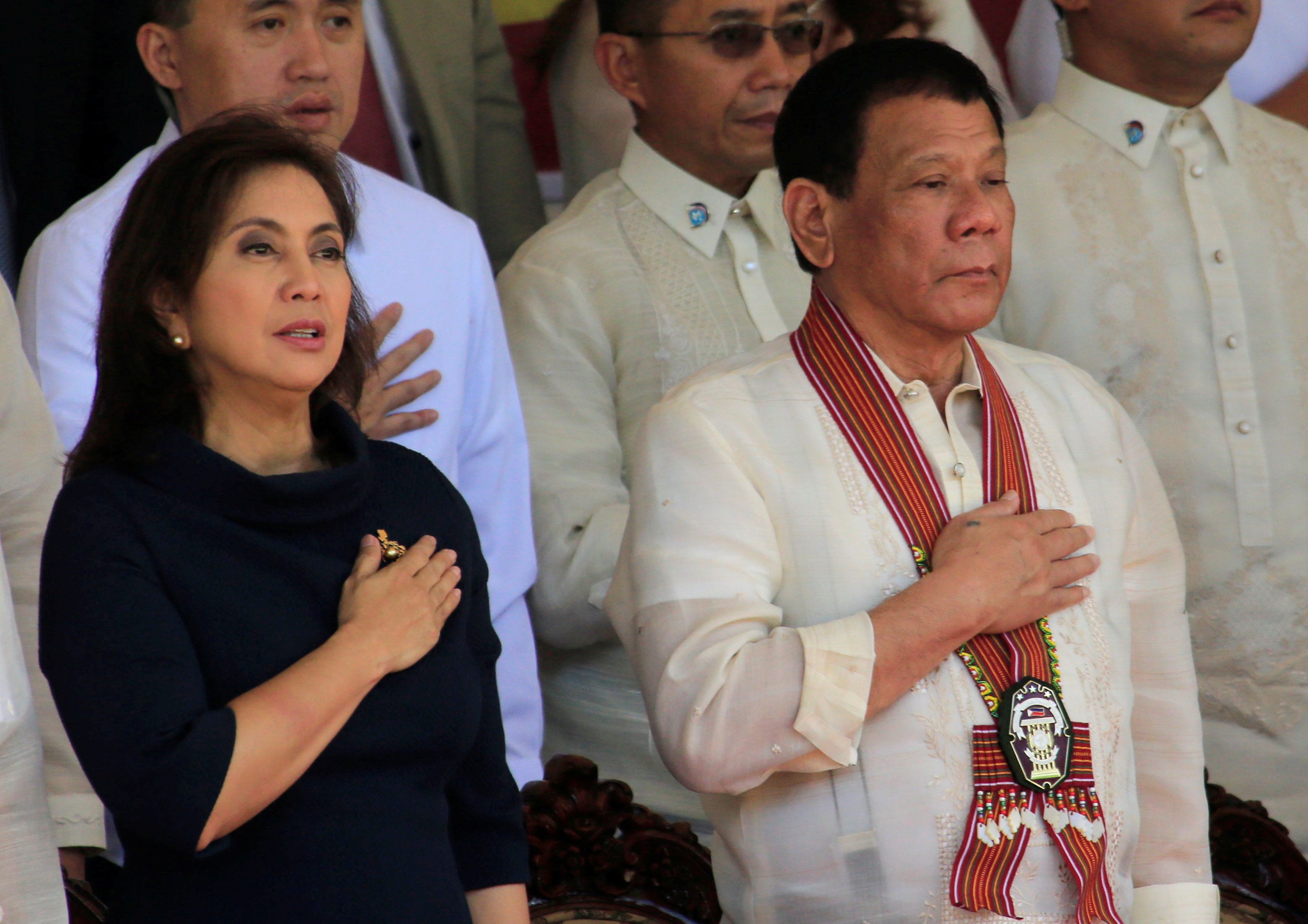What We’re Watching: Duterte’s meltdown, Bulgaria blocks North Macedonia, Middle East prepares for Biden
Duterte's typhoon troubles: As the Philippines struggles with the aftermath of Typhoon Vamco, which killed almost 70 people and submerged parts of the main island of Luzon, tough-talking President Rodrigo Duterte defended himself from accusations of poor disaster management by lashing out at Vice President Leni Robredo on live TV. The president, unleashing a barrage of sexist remarks at the Veep, falsely claimed that his political rival Robredo — the Philippines elects the VP separately from the president — had criticized him for being absent at the height of the storm, when Duterte was (virtually) attending a regional meeting of Southeast Asian leaders. Robredo, for her part, called the president a misogynist, and said she's not competing with him after Duterte threatened to be her "nightmare" if she ran in the next presidential election. We're watching to see if the typhoon disaster — or Duterte's meltdown about it — will make a dent in his popular support, which remains strong despite growing discontent over his handling of this latest crisis and the coronavirus pandemic.
Things go south (again) for North Macedonia: The small Balkan country once known clunkily as the "Former Yugoslav Republic of Macedonia" just can't seem to catch a break. Two years ago, the country finally got itself on the (longshot) path to EU membership by agreeing to call itself "North Macedonia", resolving a long-running name dispute with its southern neighbor, Greece. But with the Greeks out of the way, now Skopje (the North Macedonian capital) is running into problems with its eastern neighbor — Bulgaria. The Bulgarians say they will veto any North Macedonian EU accession talks until the two iron out their own linguistic and ethnic disputes. Among other things, Bulgaria wants the North Macedonians to recognize Macedonian as a dialect of Bulgarian, rather than an independent language. Since EU accession talks require the unanimous consent of current member states, the North Macedonians are up against a wall again. And to make matters worse for Skopje, some other EU members who are skeptical of expanding the bloc at all are right now reported to be quietly OK with the Bulgarian roadblock.
Middle East starts US transition: While President Trump still refuses to concede to President-elect Joe Biden in the US election, leaders in the Middle East are quietly preparing for the transition of power, even as US Secretary of State Mike Pompeo tours the region this week. Pompeo is scheduled to visit an Israeli settlement in the West Bank, which analysts view as a parting gift to Prime Minister "Bibi" Netanyahu, who seeks to normalize the settlements over Palestinian objections that they are illegal (and also likely an attempt by Pompeo to boost his own street cred with evangelicals as he eyes his post-Trump political career). Indeed, the Trump's administration's proposed peace plan for the Middle East was overwhelmingly rejected by the Palestinians because it would have allowed Israel to annex a third of the West Bank. Meanwhile, the Palestinian Authority has now agreed to resume ties with Israel that had been suspended for months over the annexation plans. Are both sides ready to move on from Trump? Biden is widely expected to return to the Obama administration's Middle East policy, which supported Israel but called for a two-state solution. That's bad news for Bibi and offers a glimmer of hope for the Palestinians, whose position has suffered under Trump. What's in store for the region with Biden in the White House?